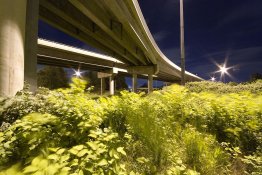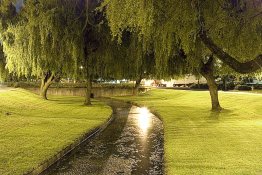I've got a Gossen Digipro F and I have to agree about the build quality, it does feel cheap, and the little rotatable incident dome feels like it might come off at any moment, but on the other hand it is wonderfully accurate. I've never had a bad Velvia exposure using it on incident, it works great with flash and it is pretty compact and runs off one AA battery pretty much forever. I've got an old analogue Pentax Spotmeter V which seems to agree with the Digipro most of the time on mid-toned subjects but I've never got on with spotmeters, I always seem to err on the side of overexposure. I guess I just need to learn more.
-
Welcome to Photrio!Registration is fast and free. Join today to unlock search, see fewer ads, and access all forum features.Click here to sign up
- Home
- Forums
- Analog Workflow Forums (100% Analog/Traditional)
- Analog Equipment
- Medium Format Cameras and Accessories
You are using an out of date browser. It may not display this or other websites correctly.
You should upgrade or use an alternative browser.
You should upgrade or use an alternative browser.
Can anyone recommend me a light meter?
-
A
- Thread starter tron_
- Start date
Recent Classifieds
-
For Trade Bronica EC
- Started by jwd722
-
Want to Buy Majestic Tripod (Seattle Area)
- Started by aconbere
-
Want to Buy Vivitar Bellows Part
- Started by binglebugbob
-
For Sale Mamiya 7/7ii 135 Panoramic Adapter Kit [unused in box]
- Started by Timothy Hyde
-
Want to Buy Leica M4 Chrome
- Started by samuelphoto
Forum statistics
Two other things I particularly like about it are the narrow acceptance angle of 30 degrees in the reflected light mode, and the ability to hold down the exposure button and run the meter across the scene and see the range of contrast on the analogue display, as I've written before I've been carrying my Digi Pro F in my pocket for more than three years with no ill effects, they are a tougher than they look.I've got a Gossen Digipro F and I have to agree about the build quality, it does feel cheap, and the little rotatable incident dome feels like it might come off at any moment, but on the other hand it is wonderfully accurate. I've never had a bad Velvia exposure using it on incident, it works great with flash and it is pretty compact and runs off one AA battery pretty much forever. I've got an old analogue Pentax Spotmeter V which seems to agree with the Digipro most of the time on mid-toned subjects but I've never got on with spotmeters, I always seem to err on the side of overexposure. I guess I just need to learn more.
Last edited by a moderator:
baachitraka
Member
Two other things I particularly like about it are the narrow acceptance angle of 30 degrees in the reflected light mode, and the ability to hold down the exposure button and run the meter across the scene and see the range of contrast on the analogue display.
Contrast measurement is also possible with Digisix, with the above mentioned way. In the mean-time they have released Digisix 2...
The nice thing about carrying the Digipro F around all the time is that you can play 'guess the exposure' even when you don't have a camera. I can usually get it to plus or minus one stop now.
I's very good practice as you say, I used to do this when I bought my first light meter over forty years ago, I also used to play guess the distance in the days when many cameras didn't have focusing aids which is a skill that many photographers these days don't have, I find this ability very useful when shooting street, to be able to focus a lens accurately before putting the camera up to your eye.The nice thing about carrying the Digipro F around all the time is that you can play 'guess the exposure' even when you don't have a camera. I can usually get it to plus or minus one stop now.
I's very good practice as you say, I used to do this when I bought my first light meter over forty years ago, I also used to play guess the distance in the days when many cameras didn't have focusing aids which is a skill that many photographers these days don't have, I find this ability very useful when shooting street, to be able to focus a lens accurately before putting the camera up to your eye.
I have no problem estimating distance. It's the scales on most lenses especially newer lenses are hard to read. Of course you know the scale is not linear and there are too few markings on the scale.
Thanks Chan, I didn't know this I don't have any newer lenses, my newest lens is a Tamron S.P 17mm f3.5 that must be around twenty years old.I have no problem estimating distance. It's the scales on most lenses especially newer lenses are hard to read. Of course you know the scale is not linear and there are too few markings on the scale.
craigclu
Subscriber
I've owned, enjoyed and trusted a Sekonic L-718 since purchased new many years ago. It's been great and stays in calibration well. It's designed as an incident meter but has a reflective accessory, 5° spot accessory and uses AA batteries. They tend to pop up on eBay from time to time and don't seem to command high prices, perhaps because they are lesser known? I've been noticing this lately as I was looking for the ground glass accessory for spot reading direct from the ground glass. I'm attaching the quick guide that is a good outline of features.
Attachments
I have a Quantum Calcu-Light XP. It has a measurement range of -7EV to 21EV for ISO100 film. Both reflected and incident and very accurate against my Minolta III F and various camera bodies that I trust. It has a digital readout with memory recall, is amazingly sensitive, and the batteries last for years. The meter is discontinued but you can pick them up on eBay where I got mine.
This is a minor legend of a meter and will work in darkness. However, with digital I find that my best shots at night are found by putting my D200 at f16 and then bracketing by exposure. I usually have 1 minute, 2 minute, 4 minute for example. These times are for scenes with artificial light sources in them for the most part.The files don't look great until you can get them into Photoshop and then the magic happens. DSLRs are superb for night work. One caveat, the long exposures eat batteries. I have my camera welded on 100ASA and also have the long exposure noise reduction on. This takes a second exposure after the first. So, I have a 2 battery set up on the D200. (Soon to be D800 btw . I also shoot in RAW at the highest possible quality. Here's a (copyrighted) sample or two of my nightwork (these are 72dpi - the prints are awesome!)
. I also shoot in RAW at the highest possible quality. Here's a (copyrighted) sample or two of my nightwork (these are 72dpi - the prints are awesome!)


I found this website very good for technical info and some great night shots of Cambridge, UK.
http://www.cambridgeincolour.com/
This is a minor legend of a meter and will work in darkness. However, with digital I find that my best shots at night are found by putting my D200 at f16 and then bracketing by exposure. I usually have 1 minute, 2 minute, 4 minute for example. These times are for scenes with artificial light sources in them for the most part.The files don't look great until you can get them into Photoshop and then the magic happens. DSLRs are superb for night work. One caveat, the long exposures eat batteries. I have my camera welded on 100ASA and also have the long exposure noise reduction on. This takes a second exposure after the first. So, I have a 2 battery set up on the D200. (Soon to be D800 btw
 . I also shoot in RAW at the highest possible quality. Here's a (copyrighted) sample or two of my nightwork (these are 72dpi - the prints are awesome!)
. I also shoot in RAW at the highest possible quality. Here's a (copyrighted) sample or two of my nightwork (these are 72dpi - the prints are awesome!)

I found this website very good for technical info and some great night shots of Cambridge, UK.
http://www.cambridgeincolour.com/
If you are serching e-bay or craigslist for the Gossen Luna Pro, remember
that name is only used
in North America. In the rest of the world it is the Gossen Lunasix 3.
Best regards,
/Clay
that name is only used
in North America. In the rest of the world it is the Gossen Lunasix 3.
Best regards,
/Clay
Last edited by a moderator:
I advise any meter by Gossen that has that dial and that scaled zero-adjust display. The top model out of that range was the Profisix.
This design provides you with an easy and foolproof means to deliberately place a luminance within the exposure range.
This design provides you with an easy and foolproof means to deliberately place a luminance within the exposure range.
Last edited by a moderator:
| Photrio.com contains affiliate links to products. We may receive a commission for purchases made through these links. To read our full affiliate disclosure statement please click Here. |
PHOTRIO PARTNERS EQUALLY FUNDING OUR COMMUNITY:  |

